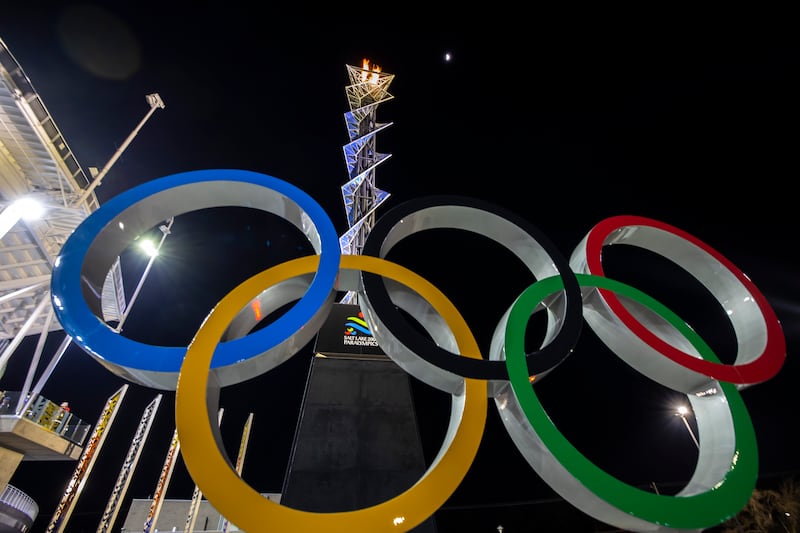Utah’s Olympic bidders still don’t know if they’re going to remain in the running for the 2030 Winter Games or shift to 2034 after meeting with the U.S. Olympic and Paralympic Committee in Colorado Springs Wednesday, but now acknowledge a decision needs to be made by November.
“I would say we’re no closer to a definitive decision, but we continue to press forward on all fronts, whether it’s 2030 or 2034,“ Fraser Bullock, president and CEO of the Salt Lake City-Utah Committee for the Games, told the Deseret News after the closed-door discussion.
But Bullock said with the 2028 Summer Games in Los Angeles, concerns remain about back-to-back Olympics in the United States. It’s hard “geopolitically” for the International Olympic Committee to award two Games in a row to the same country, he said. It also comes down to money.
The USOPC has been in talks with L.A. organizers to see if there’s a way to mitigate the impact of a Winter Games just 18 months later on domestic sponsorships, ticket sales and other key funding sources used to cover the multibillion-dollar price tag for an Olympics without using tax dollars.
And while Bullock recently suggested a resolution may not come until sometime next year, he said Wednesday the IOC “probably” would need to know before its Future Hosts Commission for the Olympic Winter Games meets in November to recommend where the Games should go.
Salt Lake City’s competitors for 2030 are Sapporo, Japan, and Vancouver, Canada, now that a bid by Barcelona, Spain, and the Pyrenees mountain region has officially ended. All of the remaining candidates have previously hosted a Winter Games — Salt Lake City in 2002, Sapporo in 1972, and Vancouver in 2010.
The Future Host Commission’s recommendations will be considered by the IOC Executive Committee, which is now set in early December to choose a city — or possibly cities — to enter into negotiations to host in 2030, under a new, less formal bidding process that also allows for multiple Games to be awarded at the same time.
That means IOC leaders could identify their picks for both 2030 and 2034, something observers believe is likely with two cities, Salt Lake City and Sapporo, viewed as strong candidates. Vancouver only recently detailed some of its plans for an Indigenous-led Games.
Bullock said it’s clear the IOC can only advance cities in December for a specific Games into what’s known as a “targeted dialogue” phase in the new bid process, which calls for a final vote by the full IOC membership. That ratification is expected in May 2023.
He declined to say what needs to happen at this point for Salt Lake City to get the go-ahead to be able to commit once and for all to 2030, other than “alignment, first of all with the IOC, in terms of what fits best for the Olympic movement in terms of timing and second of all, it’s the USOPC,” along with L.A. and Salt Lake City.
For now, Bullock said bidders are readying for the negotiations that would take place with the IOC under the targeted dialogue phase. All along, he has said Salt Lake City is focused on 2030 but has also been preparing venue and other contracts for 2034 as well.
The presentation given to the USOPC board Wednesday by Bullock and the bid committee’s chairwoman, four-time Olympic speedskater Catherine Raney Norman, detailed their meetings in Switzerland last week with IOC officials including IOC President Thomas Bach.
The USOPC is “feeling very positive that we are going to get a future Games,” Bullock said, adding they offered “their sincere gratitude for all the work that is ongoing with the bid” as well as for Utah’s support of Team USA and the Olympic movement.
The chief operating officer of the 2002 Winter Games in Salt Lake City sounded even more optimistic.
“I think the chances are extremely high of Utah hosting a future Games. And we’re hopeful that’s in ’30 or ’34,” Bullock said, calling the USOPC “a close partner” in the bid. “The position remains, we continue to work through the various elements of hosting a future Games.”


